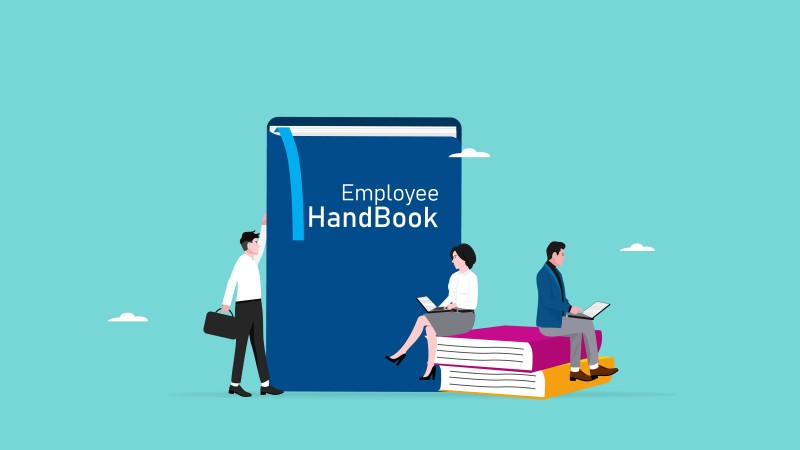
Staff Handbooks Are Essential for Every UK Employer
Staff handbooks are one of the most important tools an employer can use to set clear expectations, protect the business, and provide guidance to employees. At EBS Law, we often advise employers, managers, and business owners on how a well-drafted handbook can prevent costly disputes and ensure compliance with employment law. If your business does not yet have a handbook in place, or if yours is out of date, it may be time to take action.
The Role of Staff Handbooks in the Workplace
A staff handbook is more than just a collection of rules. It is a practical guide for employees and a protective shield for employers. By outlining company policies, values, and procedures, the handbook provides a clear reference point for how matters should be handled. It also gives employees confidence that issues such as discipline, grievances, and health and safety will be managed fairly.
Why they matter:
- They set out rights and responsibilities for both employer and employee
- They demonstrate that your business takes compliance and fairness seriously
- They help reduce the risk of misunderstandings and legal disputes
Legal Protection for Employers
One of the key benefits of staff handbooks is the legal protection they provide. If an employment dispute arises, a well-drafted handbook shows that your business has clear policies in place and that employees were made aware of them. This can make a significant difference in defending claims before an Employment Tribunal. For example, a disciplinary procedure that has been properly communicated in the handbook can protect you from allegations of unfair dismissal.
Promoting Consistency Across the Business
Consistency is essential in managing staff. Without written policies, managers may handle similar situations in different ways, which can lead to accusations of unfair treatment. Staff handbooks ensure that rules are applied consistently across departments, reducing the likelihood of conflict and helping managers feel supported in their decisions.
If you would like free advice, John Bloor and the team are here to help. Call John today on 01625 874400 or email enquiries@ebslaw.co.uk for tailored support.
What Should Staff Handbooks Contain?
The exact content of a handbook will depend on the size and nature of your business. However, there are several core sections that every employer should include. These sections not only provide clarity but also demonstrate compliance with key areas of employment law.
Typical topics covered include:
- Company values, culture, and code of conduct
- Health and safety policies
- Disciplinary and grievance procedures
- Equal opportunities and anti-harassment policies
- Absence, sickness, and holiday procedures
- Data protection and confidentiality
It is also useful to include practical day-to-day matters, such as dress code, use of company property, and flexible working arrangements. By covering both legal and operational policies, staff handbooks act as a complete reference guide for your workforce.
Staff Handbooks and Employment Law Compliance
Having a handbook in place can help ensure that your business meets its legal obligations. For example, employers are legally required to provide certain information about working hours, holiday entitlement, and disciplinary rules. While these can be included in the employment contract, it is often more practical to expand on them in the handbook. This way, the contract remains concise, and the handbook can be updated as laws and policies change.
For guidance on specific statutory requirements, employers can also refer to resources provided by trusted authorities such as ACAS. Their advice highlights how handbooks should align with employment law while also reflecting the culture and values of your organisation.
Keeping Your Handbook Up to Date
Employment law changes regularly, and so should your staff handbook. A document written five years ago may no longer reflect current regulations or best practice. For example, recent changes in flexible working rights and family leave policies mean that many older handbooks are now out of date. Reviewing your handbook at least once a year ensures it continues to provide protection and guidance.
Employers should also involve staff when updating handbooks. Seeking feedback not only improves the content but also increases employee buy-in. When staff feel included in the process, they are more likely to respect and follow the policies set out.
Why Employers Should Act Now
Failing to provide staff with a handbook leaves your business exposed to unnecessary risk. Without clear policies, disputes can escalate quickly, leading to stress, lost time, and potentially expensive legal claims. By contrast, investing in a properly drafted and regularly updated handbook gives you confidence that your managers and employees have the guidance they need.
At EBS Law, we work closely with employers to create tailored staff handbooks that reflect the unique needs of each business. We ensure that your policies comply with the law while also supporting your organisational culture. Whether you are a small business creating your first handbook or a larger company updating an existing one, our expertise can make the process straightforward and stress-free.
Contact John Bloor today for expert support at EBS Law. We’re here to ensure your business stays protected every step of the way. Call 01625 874400 or email enquiries@ebslaw.co.uk.
Further Reading
For more information on related employment law topics, you may also find the following useful:
